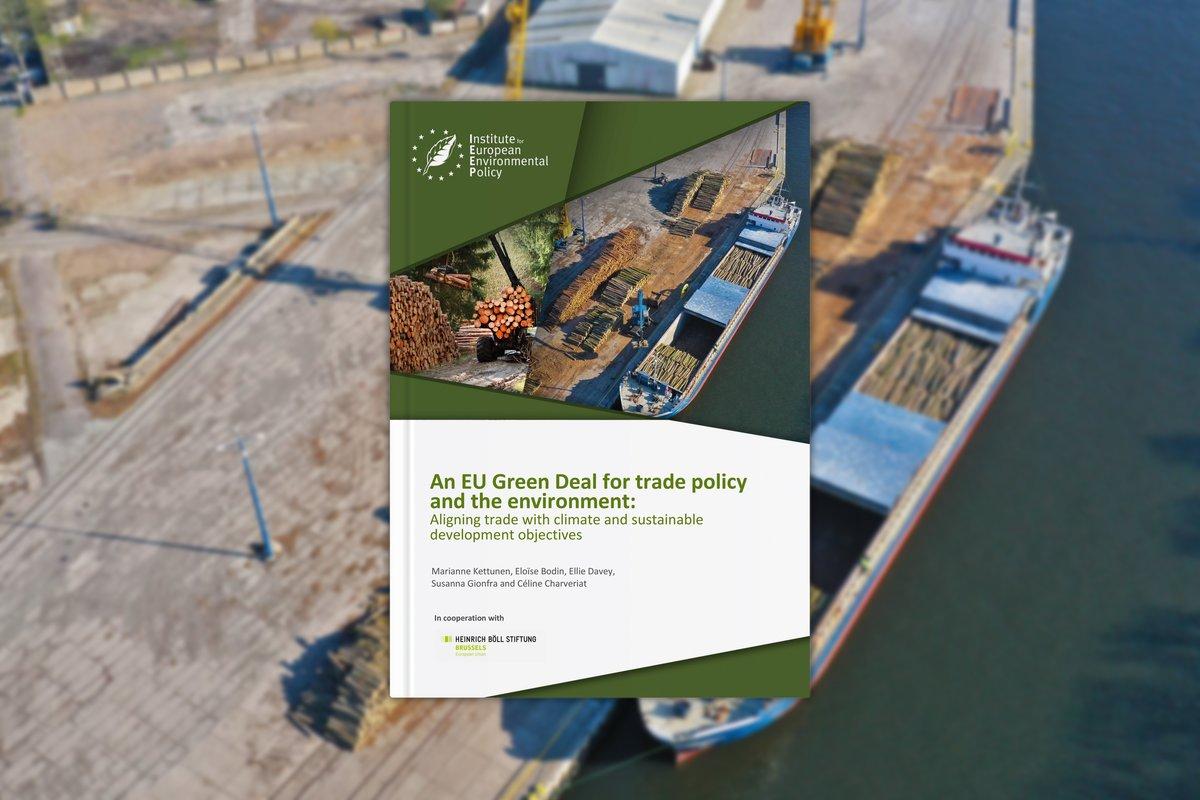AUTHORS: Marianne Kettunen – Ellie Davey – Eloïse Bodin – Susanna Gionfra – Céline Charveriat
In the wake of the Green Deal, IEEP’s newest report analyses the environmental performance of the EU’s trade policy. It concludes that more comprehensive efforts by the European Commission to uphold – and upgrade – environmental standards as part of trade are needed to deliver the promises made in the Green Deal.
The EU is the world’s largest trading bloc. It provides the biggest export market for around 80 countries, and the EU Member States account for 16% of world imports and exports. Consequently, the EU has a considerable impact on third countries through trade, including the way in which international trade is conducted and how environmental and wider sustainability-related aspects are addressed.
The EU sees trade as a key vehicle for supporting developing countries in their efforts to improve their socio-economic status and achieve the 2030 Sustainable Development Goals (SDGs). However, trade also has a flip side: the demand for goods by importing countries – such as the EU Member States – can lead to unsustainable levels and models of production in exporting countries. This translates into the unsustainable use of natural resources, and increased pollution and carbon emissions, further resulting in environmental and ecosystem degradation with various risks to human health and broader wellbeing. There are also issues linked with the sustainability of exports from the EU, for example, the export of low-quality waste for recycling to third countries.
While EU trade policy puts a great emphasis on trade being a vehicle for sustainable development, the existing evidence demonstrates that a net positive contribution of the EU trade to sustainable development – going beyond the economic and addressing also the environmental and social aspects – is as yet far from being achieved. Therefore, there is an urgent need to find ways to make EU trade and its impacts on global value chains more sustainable.
“A review of the existing evidence of the EU trade regime reveals that there is indeed cause for concern. A net positive contribution of the EU trade to sustainable development – going beyond the economic and addressing also the environmental and social aspects – is as yet far from being achieved. The EU needs to start using its trade policy and related instruments for sustainability much more effectively, in order to deliver the vision put forward by the Green Deal.”
— Marianne Kettunen, Head of Programme on Global Challenges and SDGs
Building on the review of the existing level of environmental integration in the EU trade policy regime, this policy paper explores what a truly green EU trade policy under the EU Green Deal should look like. It makes a number of recommendations for the future five-year policy trajectory, including:
- better use of the impact assessments underpinning the EU trade agreements
- key improvements in the agreements’ sustainability-related provisions, including their more assertive implementation
It also highlights the role that the EU’s sector-specific policy initiatives, i.e. initiatives that have trade-related implications but are not directly related to trade agreement negotiations, can have in elevating environmental standards through trade.
| Stakeholder workshopThe policy paper is an open invitation to an informed and evidence-based dialogue. To support this, IEEP and the Heinrich Böll Foundation Brussels organised a stakeholder workshop on 28 May to discuss the key findings of the paper. |

